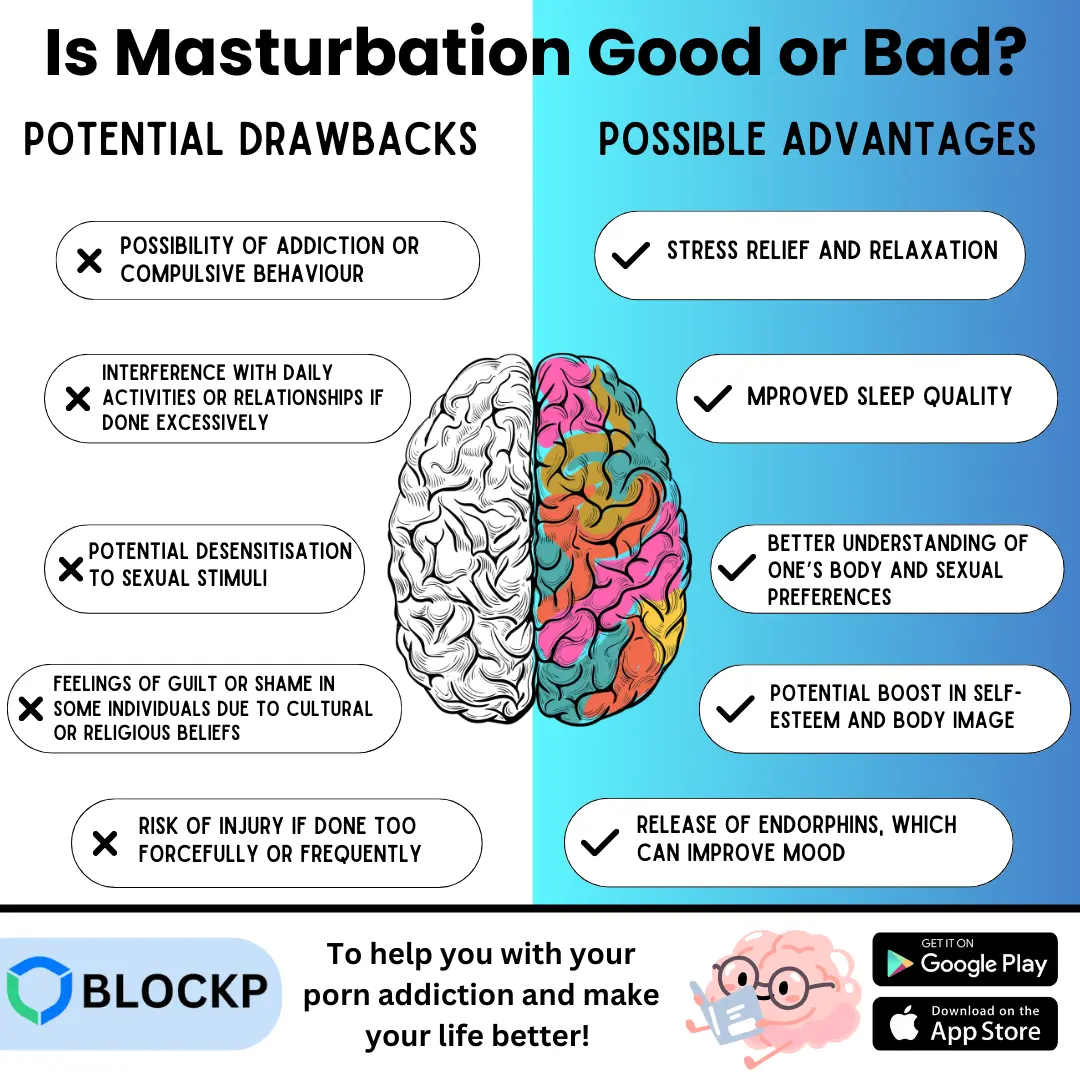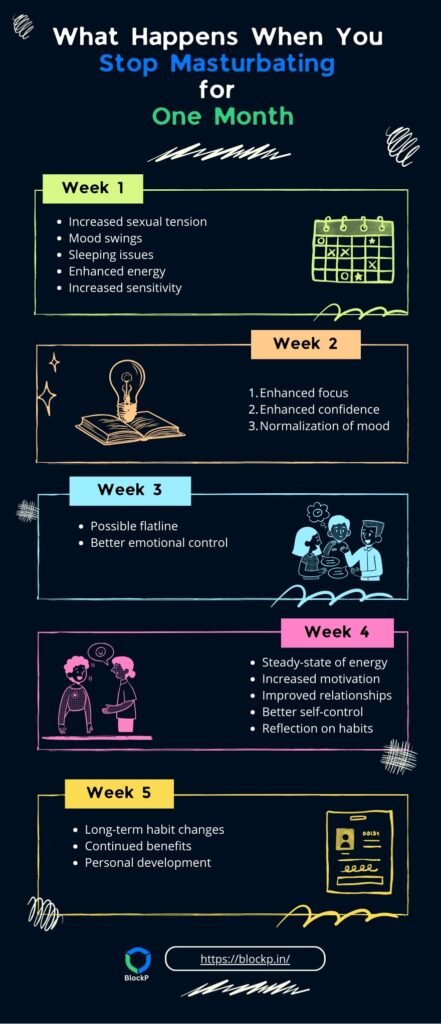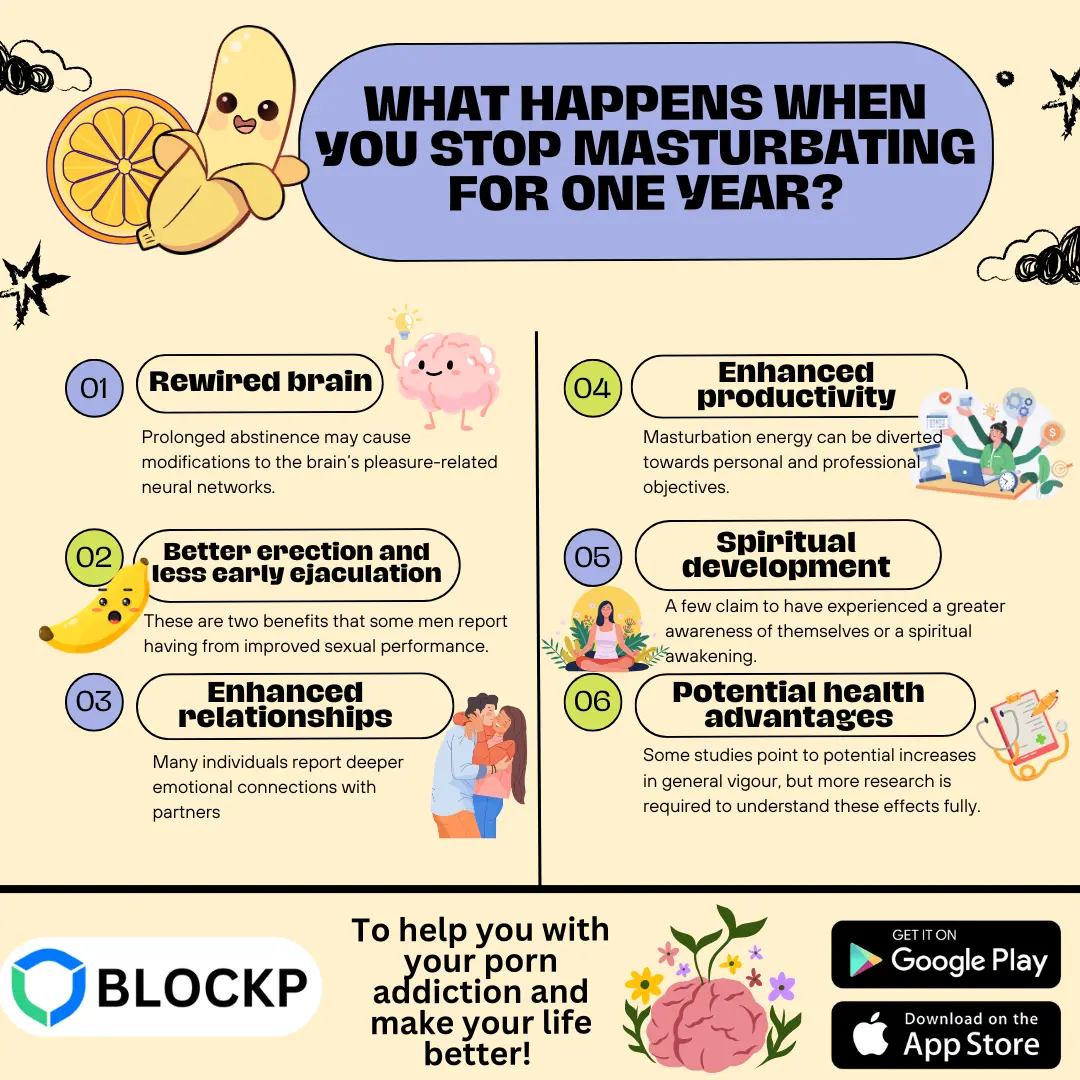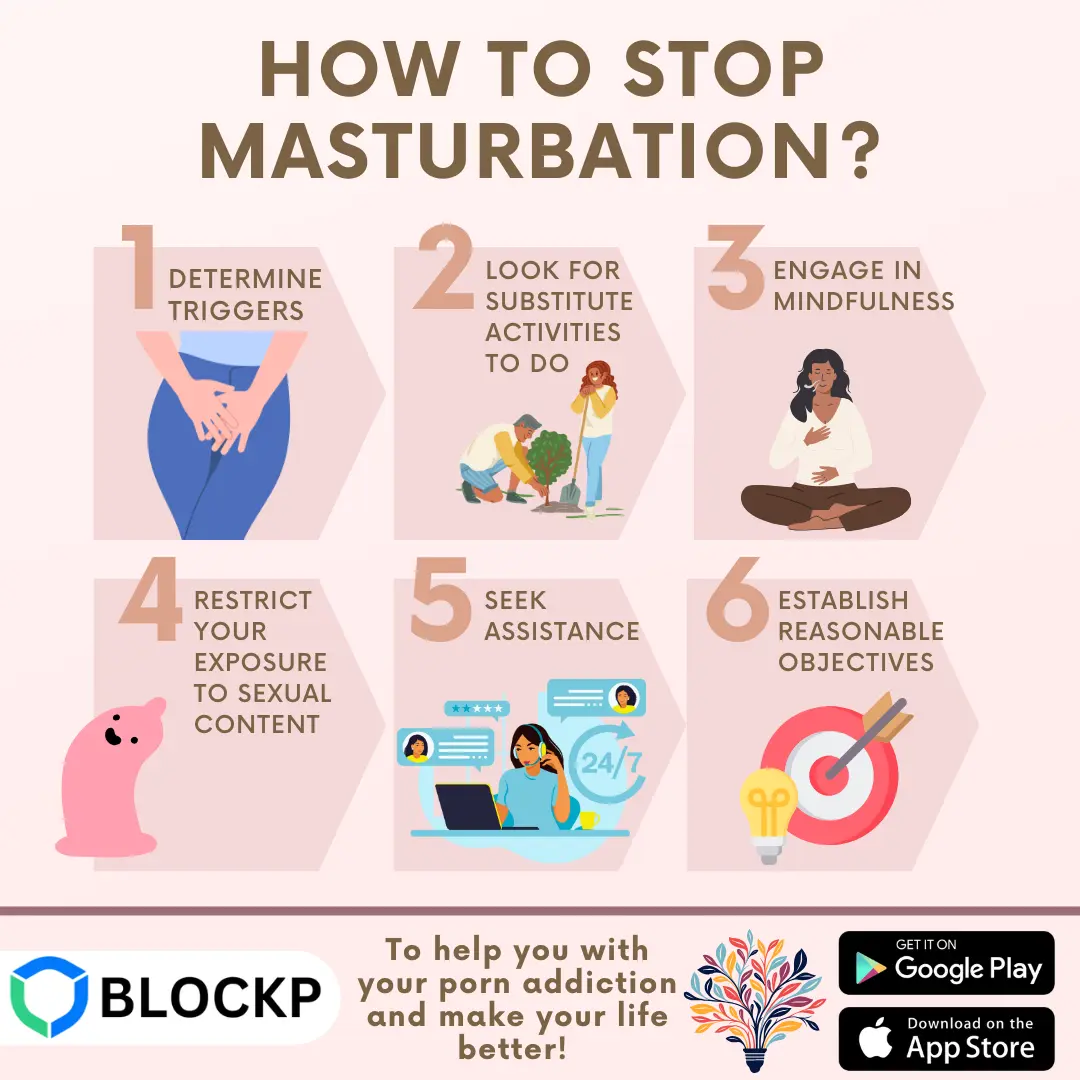We also observed that the hairy palms were not occurring. Troubles can start when someone feels negatively about masturbating, though, since this is what happens to certain people. Individuals who spend a lot of time watching porn or who feel guilty or ashamed about masturbating may discover that cutting back on these activities temporarily in favour of other hobbies might improve their lives and general health. Take our app’s quiz to receive a customised plan if you’re ready to discover the advantages of abstaining from masturbation.
Is Masturbation Good or Bad?
Hormones that are beneficial to your health and happiness can be released in moderation through masturbation. According to an estimate from a study on older persons, between 27 and 40 percent of women and 41 to 65 percent of males admitted to masturbating in the previous month. However, some folks might not have a good experience.

Possible Advantages:
- Stress relief and relaxation
- Improved sleep quality
- Better understanding of one’s body and sexual preferences
- Potential boost in self-esteem and body image
- Release of endorphins, which can improve mood
- Possible reduction in prostate cancer risk for men
- Strengthening of pelvic floor muscles
- Potential relief from menstrual cramps for women
Potential Drawbacks:
- Possibility of addiction or compulsive behaviour
- Interference with daily activities or relationships if done excessively
- Potential desensitisation to sexual stimuli
- Feelings of guilt or shame in some individuals due to cultural or religious beliefs
- Risk of injury if done too forcefully or frequently
- Possible interference with sexual performance with a partner
It is significant to remember that every individual can experience masturbation in a very different way. For some people, a habit that is joyful and healthful may cause problems for others.
Also Read: Side Effects of Masturbation in Males Once a Week
What Happens When You Stop Masturbating for One Month
This path can be both rewarding and difficult at times. If you want to develop self-control or perhaps a better relationship with your sexuality, this is particularly crucial for you. Whether the goal is self-improvement, habit modification, or understanding the power of self-control, you must carefully weigh many aspects in order to succeed.
While all types of coupled sex assessed had declined between 2009 and 2018, solitary masturbation among adults did not diminish during this time frame, according to a comparison of sexual behaviours reported in the NSSHB waves of 2018 and 2009 (Herbenick et al., 2022). You can also look into the consequences of prone masturbation at the same time.

Week 1 Without Masturbating
Many people find it difficult to stop masturbating within the first week, especially those who were habitually committing the behaviour. What you might encounter is as follows:
- Increased sexual tension: You can experience an increase in arousal and sexual ideas as your body gets used to not having a sexual release.
- Mood swings: During the first few days of abstinence, some people report feeling agitated or restless.
- Sleeping issues: If masturbating was a habit for you before bed, you may have trouble falling asleep at first.
- Enhanced energy: Some people claim to feel more energised, which could be related to the sexual energy being redirected.
- Increased sensitivity: You might start to notice physical cues and sensations in your surroundings more.
The consequences of skipping this initial week of masturbation frequently determine how the rest of the month goes. It’s critical to remain dedicated to your objective and identify constructive outlets for your enthusiasm.
Also Read: 8 Benefits of Not Ejaculating for 7 Days
Week 2 Without Masturbating
As you enter the second week, you may start to notice more pronounced changes:
- Enhanced focus: A few individuals claim to have more mental clarity and concentration.
- Enhanced confidence: You may feel more confident in yourself and in social situations.
- Normalisation of mood: The first fluctuations in mood can begin to level off.
Week 3 Without Masturbating
By the third week, you may start to experience more subtle changes:
- Possible flatline: A transient drop in libido experienced by certain people is referred to as a “flatline.”
- Better emotional control: You may find it simpler to control your emotions and stress.
Week 4 Without Masturbating
As the month draws to a close, you might observe:
- Steady state of energy: You might feel happier and more in harmony overall.
- Increased motivation: Some individuals report feeling more driven to pursue goals and activities.
- Improved relationships: You might experience enhanced connections with partners or potential romantic interests.
- Better self-control: The ability to resist urges may translate to other areas of life.
- Reflection on habits: You may gain new insights into your relationship with masturbation and sexuality.
Week 5 Without Masturbating
If you choose to continue beyond a month, you might experience:
- Long-term habit changes: The urge to masturbate may significantly decrease.
- Continued benefits: Many of the positive effects experienced in previous weeks may persist or even intensify.
- Personal development: You may come to comprehend your sexual desires on a deeper level.
What Happens When You Stop Masturbating for One Year?
When you give up masturbating for a long time—a year, for example—more significant experiences may occur. Although there are few scientific studies on long-term abstinence, many people who have taken up this challenge attest to major changes in their lives:

- Rewired brain: Prolonged abstinence may cause modifications to the brain’s pleasure-related neural networks.
- Better erection and less early ejaculation: These are two benefits that some men report having from improved sexual performance.
- Enhanced relationships: Many individuals report deeper emotional connections with partners.
- Enhanced productivity: Masturbation energy can be diverted towards personal and professional objectives.
- Spiritual development: A few claim to have experienced a greater awareness of themselves or a spiritual awakening.
- Potential health advantages: Some studies point to potential increases in general vigour, but more research is required to understand these effects fully.
While some people may find the challenge excessively tough or even detrimental to their general well-being, others may see only good outcomes.
Also Read: How to Recover from Masturbation
How to Stop Masturbation?
Here are some methods to assist you in lessening or breaking the habit of masturbating if you’re curious about what happens when you stop:

- Determine triggers: Understand the circumstances, feelings, or settings that usually cause masturbation.
- Look for substitute activities to do: Use hobbies as a way to release energy.
- Engage in mindfulness: Increase your awareness of your cravings without giving in to them.
- Restrict your exposure to sexual content: Cut back on the amount of porn or other sexually suggestive media you consume.
- Seek assistance: Participate in internet forums or support groups devoted to stopping masturbation.
- Establish reasonable objectives: Begin with little intervals of abstinence, like skipping out on masturbation for a week, then progressively extend the time.
Recall that controlling your behaviour is more important than completely quitting masturbating.

FAQs on What Happens When You Stop Masturbating for One Month
1. What occurs if you cease having regular ejaculations?
Whether through masturbation or sexual activity, you may cease ejaculating on a regular basis and go through a number of changes. Increased sexual tension, possible mood and energy swings, and occasionally wet dreams as the body adjusts to irregular release are a few of these.
2. What occurs when you give up on masturbating?
Each person experiences the cessation of masturbation differently. Changes in mood, activity levels, sleep habits, and sexual response are a few possible side effects. Many individuals report increased motivation and focus, while others may experience heightened sexual frustration.
3. Do I need to quit sulking?
Deciding to stop masturbating is a personal choice based on your values. Less frequent masturbation may be helpful if you believe that it is negatively impacting your values.
After 90 days without masturbating, what happens?
When you stop masturbating for a long time—say, ninety days—you may experience more noticeable shifts in your sexual receptivity. Some people report notable gains in general well-being. Experiences, however, might differ significantly.
Conclusion
Stopping masturbation is a very personal experience that can result in a variety of physical health issues. It’s essential to approach the journey with a focus on your overall well-being, regardless of your curiosity about what happens if you don’t masturbate for a month. Never forget that what suits you may not suit others.



1 thought on “What Happens When You Stop Masturbating for One Month?”
What happens if I masturbate twice every day